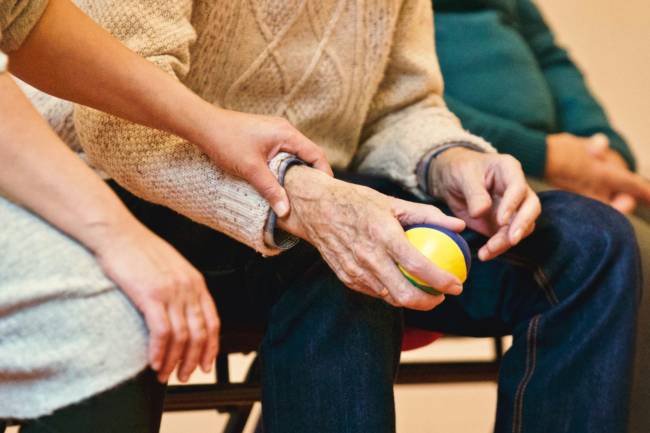
How To Take Care Of Your Eyes
The eyes are the organ of sight and one of the senses that most connects us with our environment, our loved ones, and our hobbies. They are our window to the world. And what better context than a good text to address the importance of good visual health in this entry to the health blog of the
As almost always happens with health, many times we do not value the health of our eyes until a vision problem affects us in our day-to-day life. However, as the ophthalmology professionals explain, many serious vision-related diseases do not cause previous symptoms. Because of this, maintaining good eye health depends on getting regular checkups, caring for the eyes, and avoiding illnesses.
Between 80 and 90% of the information our brain receives is visual and, furthermore, it processes it 60,000 times faster than, for example, a text. Perhaps that is why today the content that has the most followers in the world is audiovisual. But also for this reason, we have to take care of our vision and that of our children and elders more constantly.
Surely never before have the eyes been subjected to as much activity as they have been up to now. Mobile phones, computers, tablets, a television in all formats and even digital watches are added to the traditional reading or textbooks and other activities that require visual acuity. Children come into contact with a large portion of these elements from a very early age.
Taking care of your eyes
Just like the muscles in our body after physical exercise, when the eyes are subjected to excessive visual effort for a long time, they get tired and fatigued. In general, the symptoms usually disappear when you stop doing the activity that caused the fatigue and rest your eyes properly.
This is the main characteristic that differentiates visual fatigue from presbyopia or tired eyesight, which, on the contrary, is a permanent visual defect that usually occurs over the years and is only correctable through the use of glasses or surgical intervention.
As per doctors at JL Rohatgi Hospital The symptoms and causes of eye strain can be difficult to determine and can vary from person to person. Even so, there are a series of characteristics that are usually repeated in all cases.
Tired eyes: Symptoms
- Itchy and stinging eyes
- dry eye
- Transient blurred vision
- eye redness
- Swelling or a feeling of heaviness in the eyelids
- The sensation of grit or the presence of a foreign body
- Headache
Tired eyes: Causes
- Continuous visual effort. Spending many hours in front of electronic screens such as computers, mobile phones, tablets, television, etc.
- Read or gaze for a long time under conditions of low light or artificial light.
- Undetected or poorly corrected visual defects: myopia, hyperopia, astigmatism or presbyopia.
- Stress from overwork
- Lack of sleep
Tips for a rested view
There are a number of tips that can help us prevent the onset of eye fatigue or mitigate its effects in case of having it.
- Whenever possible, try to read and work in places with plenty of light, preferably natural.
- If you spend many hours in front of the computer, schedule breaks to rest your eyes every two hours maximum.
- In the case of having them, correct the possible visual defects that can be had through the use of glasses, contact lenses or refractive surgery.
- Rest and try to sleep the recommended 8 hours a day.
- Include habits in our routine that help us manage our stress levels correctly.
- If your eyes feel tired or fatigued, stop doing that activity and apply an ophthalmic solution with calming properties that soften and refresh your eyes.
Most common eye diseases
From early childhood to the end of our lives, medical professionals advise having checkups every year or, at best, every two years. So, it is simple for parents to ignore a child's slight myopia or lazy eye. And if it is not repaired, the child may experience issues in the future.
Another pathology that is typically not significant but should be treated is tired eyesight. The same holds true for glaucoma. Few people are aware that it is, besides cataracts, the second leading cause of blindness worldwide. It is a chronic condition that may lead to deteriorating vision.
The optic nerve, which transmits data from the eye to the brain, becomes damaged, which leads to glaucoma. Early detection is crucial because the harm is irreparable.
When there are close relatives who already have the disease, it is critical to concentrate more on prevention because glaucoma shares a hereditary component with other visual disorders.
The same is true for glaucoma and cataracts. To avoid this type of pathology from becoming complicated and difficult to treat as people age, it is crucial to get yearly checkups.
If detected early, macular and retinal degeneration can also be prevented and treated. And how are you, given that many disorders of the eye are related?
13 Tips for eye health care
- Blink constantly. The eyes need moisture from tears and a lubricant secreted by blinking.
- Follow the 20-20-20 rule. Every 20 minutes we must look away from the screen of our electronic device and look 20 feet away (about six metres), that is, in the distance, for 20 seconds.
- Wear glasses and contact lenses correctly. utilising the recommended time and the right graduation.
- Change the screen's contrast and brightness.
- Situate yourself at an adequate distance from the computer: To maintain visual comfort, you should be seated at about 60-65 centimetres.
- Visit an eye doctor once a year for a thorough examination.
- Control blood sugar level.
- Maintain healthy blood pressure and cholesterol levels.
- No Smoking.
- Do exercise.
- To avoid pathologies that have a hereditary component, be aware of the family history of eye health.
- Eating a healthy diet that helps us maintain a healthy weight.
- Perform proper eye hygiene. The eyelids and eyelashes protect the eyes from drying out, from injuries and from the aggression of foreign bodies. If they are dehydrated or not perfectly clean, due to dusty or dry environments or cosmetic products, they can generate secretions that are harmful to the eye.
Performing exercise and following these tips can prevent your eyes from having major problems and help you lead a healthy life.












